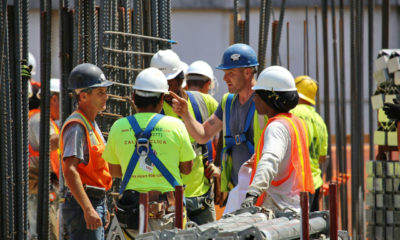- Rising Foreign Debt Profile Bad for Economy – Senate panel
The Senate Committee on Foreign and Local Debts has expressed worry over the rising foreign debt profile of the country and described the trend as very dangerous to the nation’s economy.
The panel, therefore, called on well-meaning Nigerians to rise up and condemn the development to avoid a re-colonisation of Nigeria.
The Chairman of the committee, Senator Shehu Sani, stated this in an interview with our correspondent while expressing the views of his panel on the latest moves by the Federal Government to take additional loans from Brazil and India.
Investigation recently revealed that Nigeria’s external debt commitment rose by $11.77bn in the last three years.
Debt statistics obtained by our correspondent from the Debt Management Office revealed that the country’s external debt rose from $10.32bn on June 30, 2015 to $22.08bn as of June 30 this year.
This means that the country’s external debt commitment has grown by 114.05 per cent in the last three years.
Sani lamented the development and noted that the matter became worse because rather than channelling the foreign loans to production to boost the economy, they were being spent on infrastructure.
He also regretted that despite the fact that the administration of former President Olusegun Obasanjo succeeded in taking the nation out of foreign debt, the current administration had plunged the country into huge debts without anything to show for it.
He said, “The truth is that the nation has been consistently taking foreign loans to execute capital projects especially roads, rail, airports and water dams.
“Even now, they are perfecting arrangements to take $1bn loan from Brazil to fund agriculture while also engaging in talks with India to take $100m for Information and Communication Technology.
“It is important to note that debt is the new colonialism in the world. Nations in both the East and West are struggling to conserve their money. By giving us loans, they are investing in the future of their children.
“It is ironic that the Federal Government agencies are declaring billions and trillions as revenue generated, and at the same time, the government is busy taking foreign loans.
“We must be careful so that our country is not recolonised through the indiscriminate loans we are taking without anything to show for it.
“Despite the fact that we have been out of debt under former President Olusegun Obasanjo’s administration, our external debt profile is rising at over $22bn.
“If we are going by the pending request, we may reach a red line that could be very dangerous. Any attempt to load debts on this country is anti-people.
“Apart from a stiff resistance that must come from the parliament, Nigerians should rise up and resist further borrowing by the current administration.”

 Forex3 weeks ago
Forex3 weeks ago
 Naira2 weeks ago
Naira2 weeks ago
 Billionaire Watch2 weeks ago
Billionaire Watch2 weeks ago



 Naira3 weeks ago
Naira3 weeks ago






 Naira2 weeks ago
Naira2 weeks ago




 Naira1 week ago
Naira1 week ago




 Naira4 weeks ago
Naira4 weeks ago






 Naira1 week ago
Naira1 week ago
























